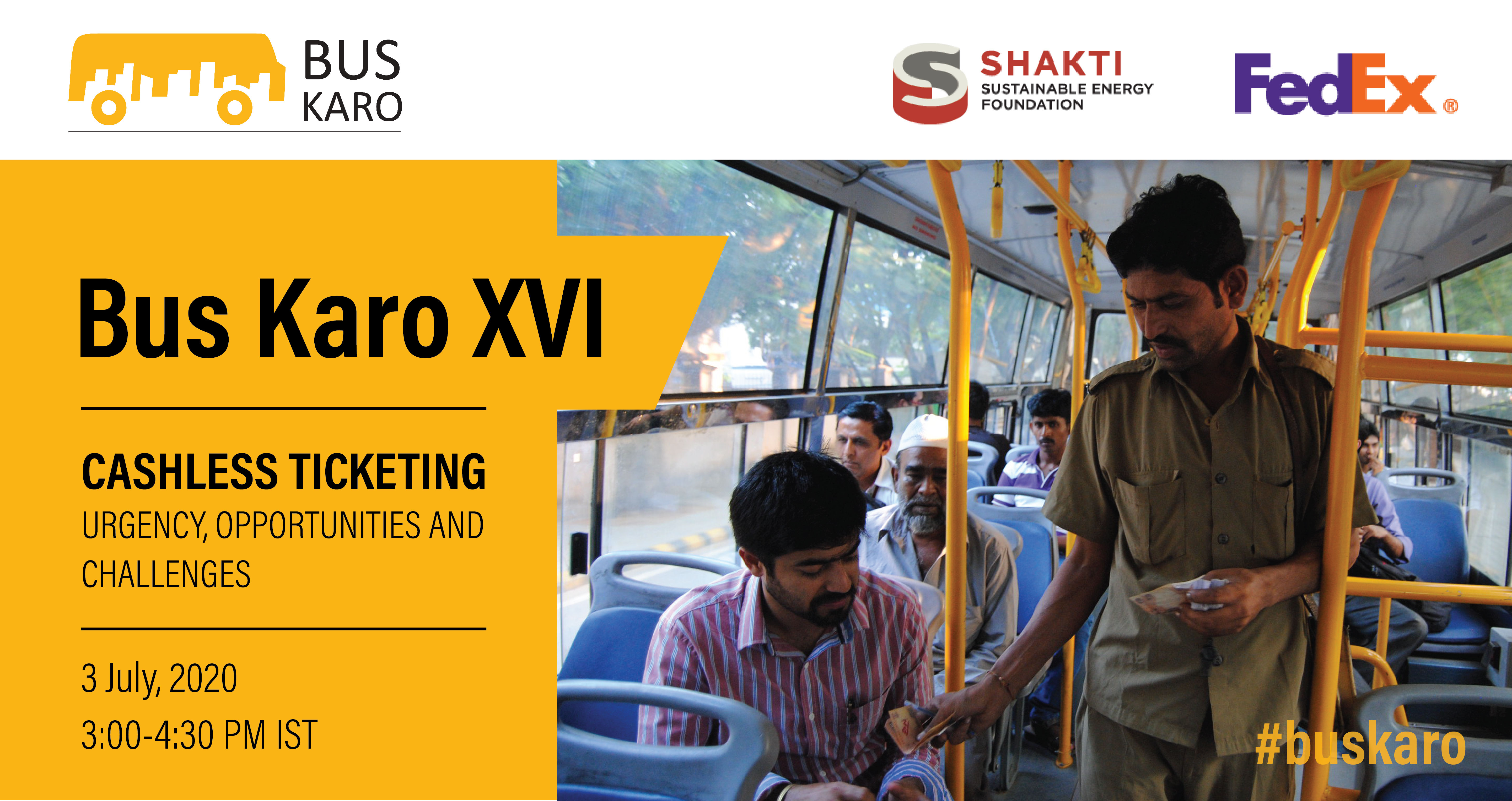
The current pandemic has forced us to reconsider everything cities are known for – dense neighbourhoods, crowded markets, mobility of people, etc. Mass transit has been especially impacted. The peak hour rush that our transit systems are already struggling with, the deteriorating urban air quality and congestion - all need a fresh perspective.
Cash and paper economy that urban commuters and transit systems are so dependent on is most vulnerable to the threat of infection. Buses in Indian cities are undeniably the most indispensable mode of transport. In the pre-COVID world, Delhi Transport Corporation (DTC) and Delhi Integrated Multi-Modal Transit System (DIMTS) together had an average ridership of about 40 lakh daily. 22% of motorized trips in Mumbai were done on buses and Bengaluru Metropolitan Transport Corporation (BMTC) had the largest mode share in Bangalore. There are also informal and privately operated buses that cater to a large daily ridership in other cities.
A transition to a cashless economy is ambitious and addressing the requirements of the bus ridership, its legacy systems and dependence of liquidity might be a crucial first step. The discussion is more relevant now than ever and is a starting point to put India’s urban transit systems on the path to a cashless future.
The panel aims to discuss the following topics:
- How are cities trying to move away from cash and paper tickets in the immediate post-lockdown movement?
- Given the fresh urgency and importance a cashless transition assumes now, how can programs like the National Common Mobility Card (NCMC) scale faster?
- What is the role of private enterprises in achieving and scaling this transition?
- What real implementation challenges require attention for a more permanent transition? (both for service providers and different commuter groups)
Panelists
- K Santosh Babu, IPS, Director (Information Technology), BMTC
- Neelesh Gupta, Incharge, Rupay Acceptance, National Payments Corporation of India
- Pravesh Biyani, Associate Professor, IIT Delhi
- Priya Ajith, Vice President, Product Management, PayCraft
- Sanyam Gandhi, Director, Chartered Speed
Moderator - Amit Bhatt, Executive Director, Integrated Transport, WRI India
